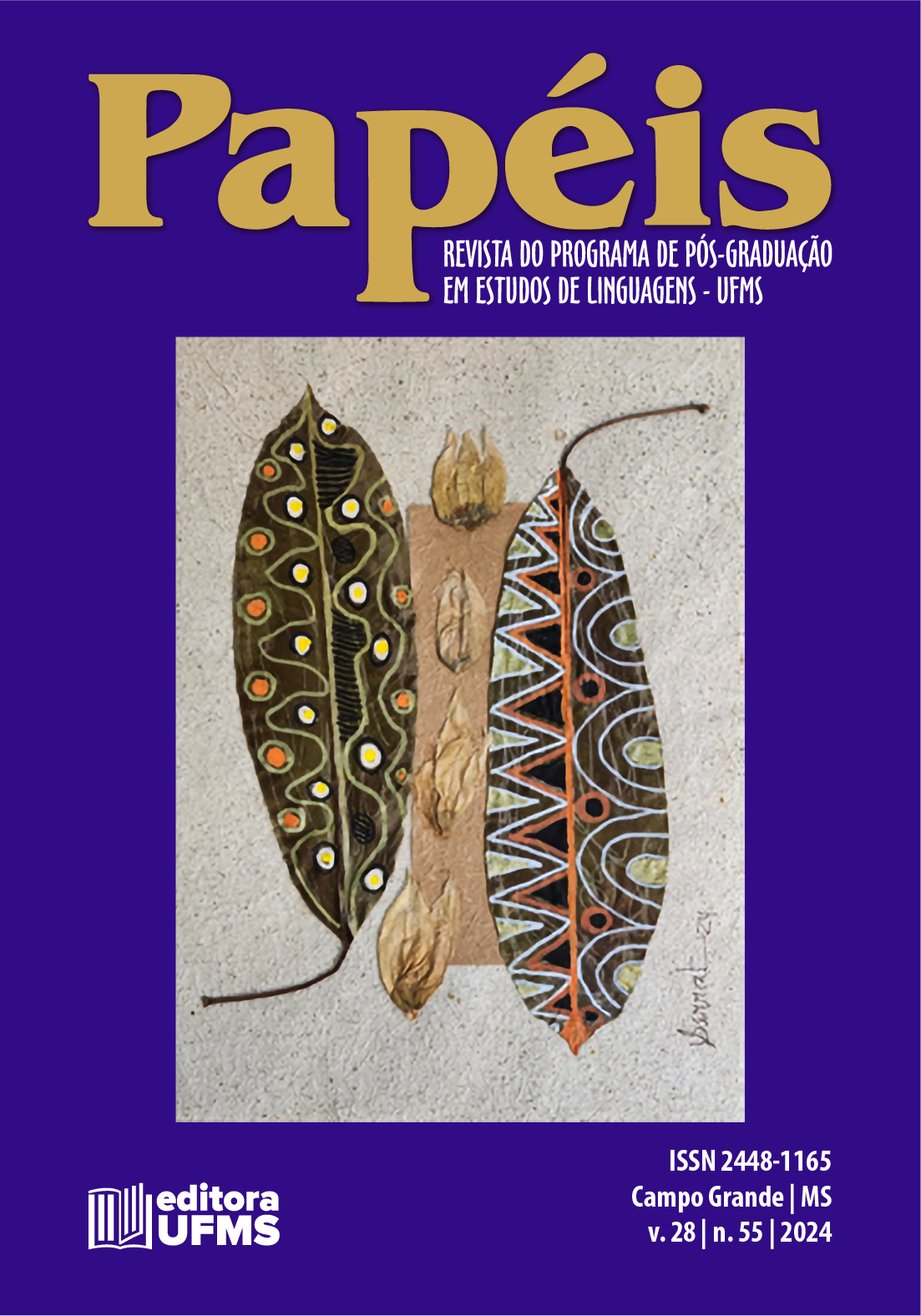O ESTÚDIO DO DEBATE PRESIDENCIAL AO VIVO: UM ELEMENTO DE PRODUÇÃO DE SENTIDO
Resumo
No presente artigo temos como texto para análise os estúdios das emissoras de televisão. Então, um plano de expressão montado, para produzir um sentido, no debate presidencial ao vivo. Para desenvolver esse estudo, utilizamos as categorias canônicas do semissimbolismo, de Jean-Marie Floch. Nessa proposta, analisamos os debates transmitidos pela Bandeirantes e pela Rede Globo, de 1989 a 2014. Consideramos que o estúdio é figurativizado como processo de manipulação do eleitor, pois o debate é uma estratégia argumentativa, sendo assim, a figurativização do estúdio e a disposição dos actantes na cena enunciada produzem um sentido que coaduna com a expectativa das emissoras. Nas análises, concluímos, ao homologarmos o plano do conteúdo em relação ao plano da expressão plástica do espaço dos debates, que os elementos que compõem as categorias eidéticas, topológicas e cromáticas são inseridos na cena enunciada, materializando o discurso que as emissoras pretendem transmitir, sejam eles eufóricos ou disfóricos em relação aos sujeitos.
Referências
FIORIN, José Luiz. As astúcias da enunciação. As categorias de pessoa, espaço e tempo. São Paulo: Ática, 2ª edição, 4ª reimpressão, 2005, 288 p.
FLOCH Jean-Marie. Petites Mythologies de l’oeil et de l’esprit. Pour une sémiotique plastique. Paris/Amsterdam: Hadès-Benjamins, 1985.
FLOCH Jean-Marie. Identité visuelles. Paris: Puf, 1985, 221 p.
PLATON. La République. Baccou, Robert (Préface, traduction, notes). Paris: Garnier-Flammarion, impr, 1966, livre VII.
HOUAISS, Antônio ; VILLAR, Mauro de Salles. Dicionário Houaiss da Língua Portuguesa. Rio de Janeiro: Objetiva, 2009, 1986 p.
VEIGA, Luciana Fernandes; SOUZA, Nelson Rosário de; SANTOS, Sandra Avi dos. Debate presidencial: as estratégias de Lula e Alckmin na TV Bandeirantes. In: Política & Sociedade, Nº 10, abril de 2007. Disponível em:
Autores que publicam nesta revista concordam com os seguintes termos:
- Autores mantém os direitos autorais e concedem à revista o direito de primeira publicação, com o trabalho simultaneamente licenciado sob a Licença Creative Commons Attribution que permite o compartilhamento do trabalho com reconhecimento da autoria e publicação inicial nesta revista.
- Autores têm autorização para assumir contratos adicionais separadamente, para distribuição não-exclusiva da versão do trabalho publicada nesta revista (ex.: publicar em repositório institucional ou como capítulo de livro), com reconhecimento de autoria e publicação inicial nesta revista.
- Autores têm permissão e são estimulados a publicar e distribuir seu trabalho online (ex.: em repositórios institucionais ou na sua página pessoal) a qualquer ponto antes ou durante o processo editorial, já que isso pode gerar alterações produtivas, bem como aumentar o impacto e a citação do trabalho publicado (Veja O Efeito do Acesso Livre).

Este obra está licenciado com uma Licença Creative Commons Atribuição-NãoComercial 4.0 Internacional.




